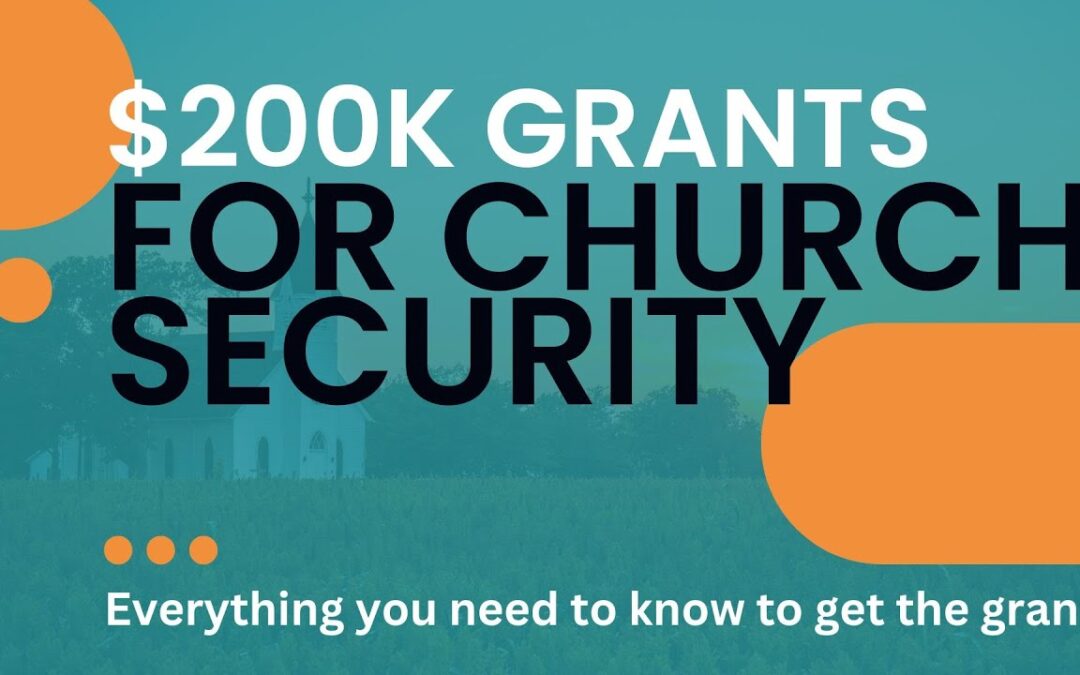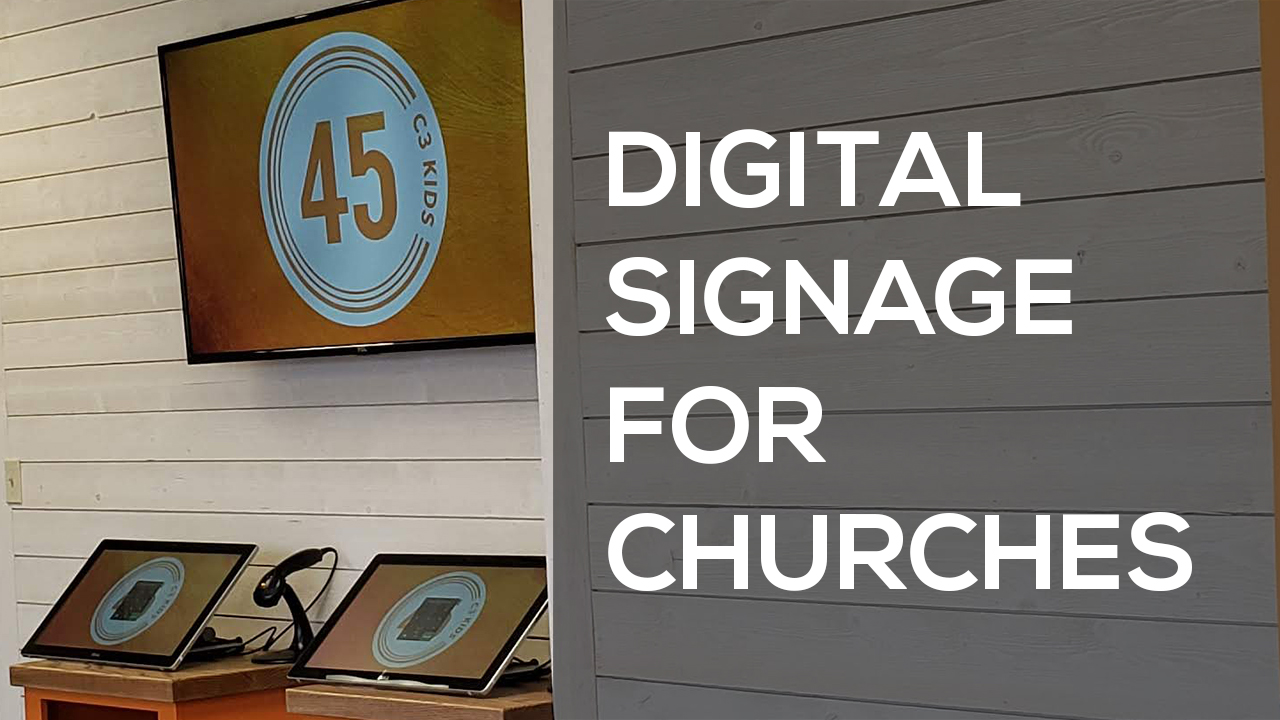In recent years, incidents of violence and security threats against faith-based organizations have become an increasing concern. In response, the U.S. Department of Homeland Security (DHS), through the Federal Emergency Management Agency (FEMA), offers the Nonprofit Security Grant Program (NSGP). This program provides funding for security enhancements to nonprofit organizations, including churches and other places of worship, that are at risk of terrorist attacks. The NSGP aims to improve physical and cybersecurity measures to protect facilities, congregants, and the broader community. In this guide, we’ll explore how the NSGP works, its eligibility criteria, and how churches can use this grant to bolster security.
Understanding the Nonprofit Security Grant Program
The Nonprofit Security Grant Program was created to address the growing risks faced by nonprofit organizations that could be targeted for terrorist or extremist attacks. Specifically, the NSGP provides financial support for security upgrades, training, and cyber protections to nonprofit entities at risk. This funding aligns with DHS’s mission to protect soft targets and crowded spaces, including religious institutions, community centers, and other nonprofits.
The NSGP for 2024 includes $274.5 million in total funds, divided into two subprograms:
- NSGP-UA (Urban Area): Supports nonprofits within high-risk urban areas identified by the Urban Area Security Initiative.
- NSGP-S (State): Available to nonprofits located outside of designated high-risk urban zones.
Churches and faith-based organizations, often considered soft targets, are among the many nonprofits eligible to apply for these funds.
The Threats Facing Churches and Faith-Based Organizations
Churches, synagogues, mosques, and other religious centers are increasingly vulnerable to various security threats. These can range from hate crimes and extremist attacks to cyber threats against systems holding sensitive information on members.
Common threats that churches face include:
- Physical Attacks: Vandalism, arson, and violent acts by individuals or groups targeting religious entities.
- Cybersecurity Risks: Attacks on member databases, donation processing systems, or general IT systems, putting sensitive congregational data at risk.
- Theft and Property Damage: Due to the public and open nature of churches, these venues are often vulnerable to property crimes, especially during non-service hours.
By applying for the NSGP, churches can gain access to funds that help them invest in security measures to mitigate these risks.
Eligibility Requirements: Can Your Church Apply?
To be eligible for NSGP funding, churches and other nonprofits must meet several criteria:
- 501(c)(3) Status: Churches must be classified as a tax-exempt organization under section 501(c)(3) of the Internal Revenue Code. However, faith-based organizations often do not need formal recognition from the IRS to qualify.
- Demonstrated Security Risk: Applicants must show that they are at high risk of terrorist or extremist threats. This is typically done through a vulnerability assessment that identifies the church’s specific risks.
- Location Requirements: Churches in high-risk urban areas apply under NSGP-UA, while those in rural or suburban areas apply under NSGP-S. Churches with multiple locations may submit separate applications for each site.
- Commitment to Security Enhancements: The funds requested should be used to support security improvements, such as physical barriers, access control systems, or security training for staff.
How to Apply: Key Steps for Churches
Applying for the NSGP involves a few important steps. Since churches typically submit their applications through their state’s State Administrative Agency (SAA), they must collaborate closely with the SAA throughout the process.
Step 1: Conduct a Vulnerability Assessment
The first step is to complete a vulnerability assessment to evaluate current security risks and identify areas needing improvement. This assessment will be crucial for the application, as it justifies the church’s need for funding. Common areas covered in the assessment might include entry points, public access during events, cybersecurity measures, and the church’s existing emergency response plans.
Step 2: Develop an Investment Justification (IJ)
An Investment Justification (IJ) is a critical component of the NSGP application. This document outlines the specific security improvements requested, such as:
- Surveillance cameras to monitor vulnerable areas
- Access control systems to limit entry to authorized personnel
- Cybersecurity training for staff to protect sensitive member data
Each project described in the IJ must demonstrate a direct link to enhancing security and reducing risks identified in the vulnerability assessment.
Step 3: Submit the Application
Once the IJ is completed and the vulnerability assessment is ready, churches submit their application to the SAA by the state’s designated deadline (usually well before FEMA’s June deadline). The SAA reviews and prioritizes applications, submitting the top requests to FEMA for final approval.
Allowable Costs: How Churches Can Use NSGP Funds
The NSGP funds can be used in several impactful ways to improve security. For churches, typical allowable costs include:
1. Physical Security Enhancements
- Surveillance Systems: Installation of cameras and monitoring equipment for parking lots, entryways, and other vulnerable areas.
- Access Control: Card readers, keypad entry, and locking systems to limit access to sensitive areas.
- Barriers and Fencing: Gates, fences, and bollards to restrict vehicle or foot traffic in certain areas, providing a physical boundary around the premises.
2. Cybersecurity Upgrades
- Software and Systems Security: Protecting member and donation databases from cyber threats through enhanced cybersecurity software.
- Cybersecurity Training: Educating church staff on best practices for data protection, phishing prevention, and secure data storage.
3. Security Training and Exercises
- Active Shooter Drills: Training sessions for staff and congregants on emergency response procedures.
- Emergency Preparedness: Developing and practicing evacuation plans, lock-down protocols, and coordination with local law enforcement.
4. Personnel Costs
- Private Security: Hiring trained security personnel for special events or regular services, providing a visible deterrent and immediate response capability.
5. Planning and Preparedness
- Risk Assessments: Ongoing evaluations to ensure security measures remain effective against evolving threats.
- Emergency Plans: Creating and updating comprehensive emergency plans, including crisis communication protocols.
Maximizing the Impact: Key Tips for Churches
To make the most of the NSGP funds, churches should focus on a few key best practices:
- Collaborate with Local Law Enforcement: Building a relationship with local police and emergency services can strengthen security efforts and create a support system for the church in case of an emergency.
- Engage Congregants in Security: Educate the congregation about security practices and engage them in awareness programs. This will foster a community that’s more alert and proactive about security concerns.
- Prioritize High-Impact Projects: Since funds may be limited, prioritize projects that offer the greatest security improvements for the church. Focus first on known vulnerabilities and high-risk areas.
- Leverage Cybersecurity Resources: The Cybersecurity and Infrastructure Security Agency (CISA) offers cybersecurity performance goals and resources that can complement NSGP funding. Using these tools can help establish comprehensive cyber protections beyond the initial grant.
Key Dates and Deadlines
Churches should keep in mind these general dates each year for the NSGP application process, but also be aware that these dates can change and every state sets their own deadlines:
- Application Start Date: April-May
- SAA Submission Deadline: Varies by state; check with the local SAA
- FEMA Submission Deadline: May-June
- Funding Award Date: September-October
Starting early and working closely with the SAA is essential for meeting these deadlines and ensuring all application requirements are met.
Conclusion: A Vital Resource for Church Security
In an era where churches and faith-based organizations are increasingly at risk, the Nonprofit Security Grant Program serves as a crucial resource. By taking advantage of this program, churches can enhance their physical and cybersecurity measures, foster a safe environment for worship, and build resilience against potential threats. Through proactive planning, a strong application, and prioritization of impactful projects, churches can use NSGP funds to significantly strengthen their security posture and safeguard their communities.
Whether a church seeks to protect against physical intrusions, improve cybersecurity, or simply train staff for emergencies, the NSGP provides an opportunity to invest in long-term security. For faith-based communities across the nation, this grant program is a lifeline for safer worship spaces and a more secure future.




